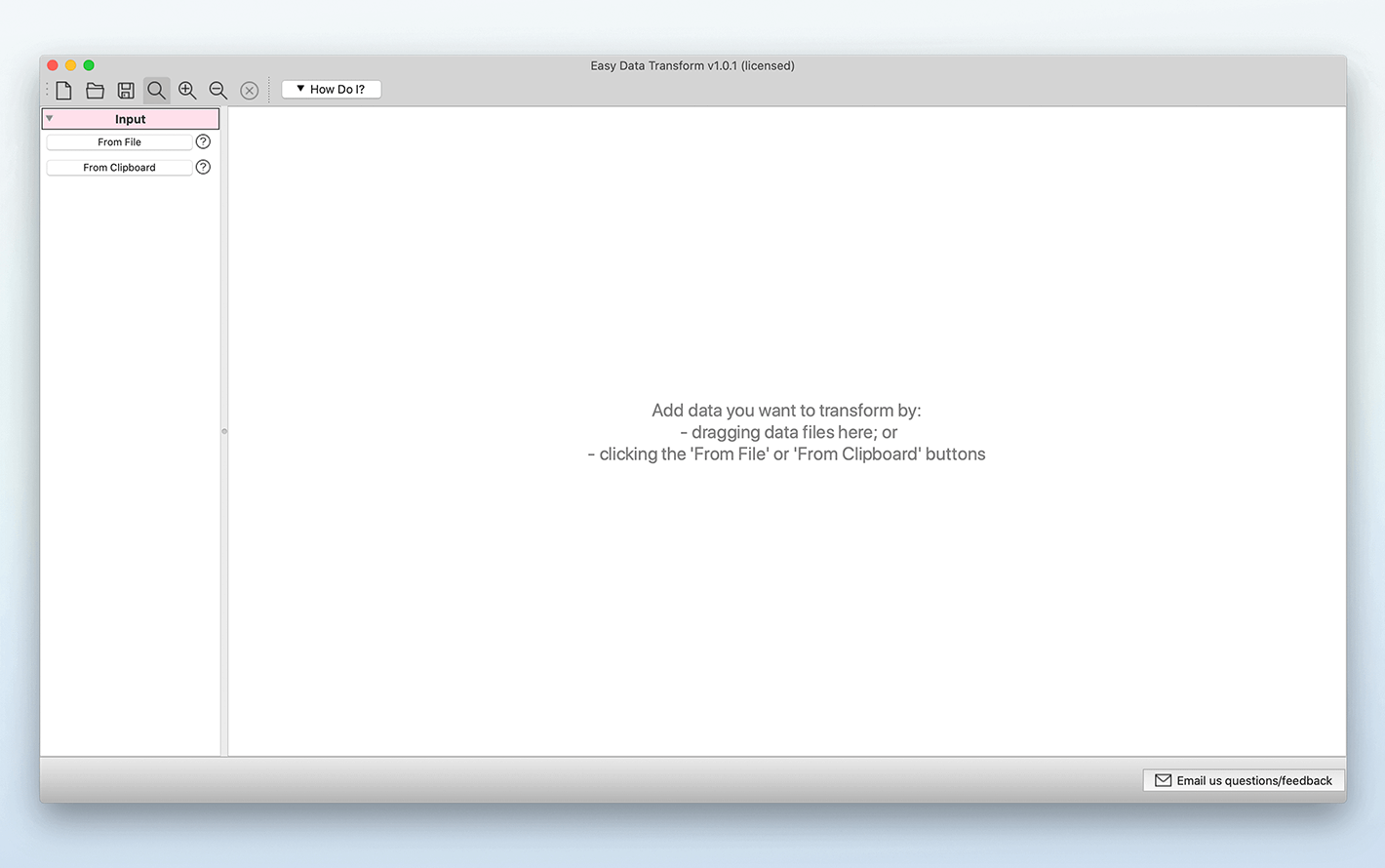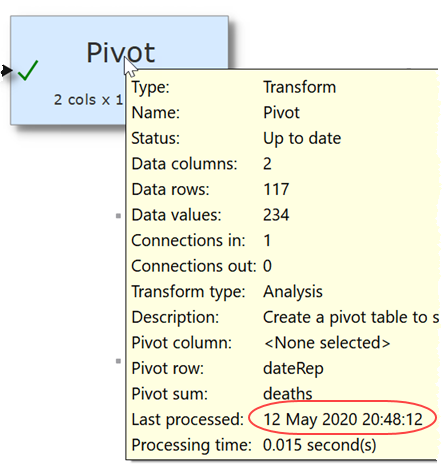

- EASY DATA TRANSFORM MAC FOR MAC
- EASY DATA TRANSFORM MAC FULL
- EASY DATA TRANSFORM MAC SOFTWARE
- EASY DATA TRANSFORM MAC LICENSE
- EASY DATA TRANSFORM MAC DOWNLOAD
EASY DATA TRANSFORM MAC DOWNLOAD
EASY DATA TRANSFORM MAC LICENSE
***********************************************************************Īfter removing the old installation and the license files, please download the new online installer via your commercial Qt Account.Īfter installing Qt with commercial license, it should be able to find the Qt 5.15.10 also through the maintenance tool in addition to online installer. īe sure to name the Qt license file as ".qt-license" and not for example ".qt-license.txt". " /Users/$USERNAME/Library/Application Support/Qt/qtaccount.ini"Īs a side note: If the files above cannot be found $HOME/.qt-license(Linux/macOS) or %USERPROFILE%\.qt-license(Windows) file is used as a fallback.qt-license file can be downloaded from Qt Account. " /Users/$USERNAME/Library/Application Support/Qt/qtlicenses.ini" " /home/$USERNAME/.local/share/Qt/qtaccount.ini" " /home/$USERNAME/.local/share/Qt/qtlicenses.ini" "C: /Users/%USERNAME%/AppData/Roaming/Qt/qtaccount.ini" "C: /Users/%USERNAME%/AppData/Roaming/Qt/qtlicenses.ini" You need to remove the following files to fully reset the license information.

Unified installer/maintenancetool/qtcreator will save all licenses (downloaded from the used Qt Account) inside the new qtlicenses.ini file. Instructions for removing the license files: Then remove the old open source licenses which might exist. So, first step is to remove the old Qt installation completely. Qt 5.15.10 should be available through the maintenance tool but it is required to remove the old open source installation completely and also remove the open source license files from your system. I assume that you were previously using open source version, is that correct? Here is the information I got from Qt support: After you buy your commercial licence you need to delete your open source installation and all the associated license files. The latest Qt 5 LTS releases are not available via the Qt maintenance tool if you have open source Qt installed.I’m going to spell them out here to save you that pain. Moving from producing an Intel binary using LGPL Qt to producing a Universal binary using commercial Qt involved several major stumbling points that took me hours and a lot of googling to sort out.
EASY DATA TRANSFORM MAC FULL
The push towards commercial licensing is controversial with Qt developers, but I really appreciate Qt and all the work that goes into it, so I am happy to support the business (not enough to pay the eye-watering fee for a full enterprise license though!). Thankfully I was eligible for the Qt small business license which is currently $499 per year. So I decided to switch from the free LGPL license and buy a commercial Qt license. I also want access to all the latest bug fixes for Qt 5. I want to use the QtCharts component in Easy Data Transform v2, and QtCharts requires a commercial license (or GPL, which is a no-go for me). Qt 5.15.3 and later are only available to Qt customers with commercial licenses. I am sticking with Qt 5 for now, because it better supports multiple text encodings and because I don’t see any particular advantage to switching to Qt 6 yet.
EASY DATA TRANSFORM MAC FOR MAC
Qt announced support for Mac Universal binaries in Qt 6.2 and Qt 5.15.9.
EASY DATA TRANSFORM MAC SOFTWARE
My software is built on-top of the excellent Qt cross-platfom framework. Hopefully I will have retired before the next chip change on the Mac. This is a process familiar from moving my seating planner software for Mac from PowerPC to Intel chips some years ago. So I have been investigating moving Easy Data Transform from an Intel binary to a Universal (‘fat') binary containing both Intel and ARM binaries.

Also people who have just spent a small fortune on a shiny new ARM Mac can get grumpy about not having a native ARM binary to run on it. That may not seem like a lot, but it is significant on processor intensive applications such as my own data wrangling software, which often processes datasets with millions of rows through complex sequences of merging, splitting, reformatting, filtering and reshaping. The emulation works very well, but is quoted to be some 20% slower than running native ARM binaries. In the process it has provided an emulation layer (Rosetta2) to ensure that the new ARM Macs can still run applications created for Intel Macs. Apple has transitioned Macs from Intel to ARM (M1/M2) chips.


 0 kommentar(er)
0 kommentar(er)
